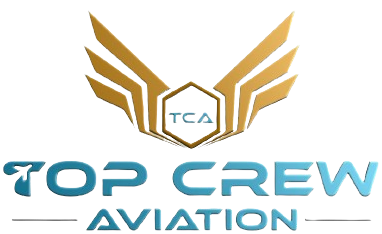
Introduction
If you dream of becoming an airline captain, you’ve probably heard about ATPL Ground Classes. They’re not just another box to tick—they’re a significant step in your pilot journey. The question is: When is the perfect time to start them? Starting too early might overwhelm you, but starting too late could slow your career progression. Let’s break it down so you can make the most intelligent decision.
Understanding ATPL
What is ATPL?
ATPL stands for Airline Transport Pilot License, the highest level of pilot certification. It allows you to act as the Pilot-in-Command (PIC) of large commercial aircraft.
Difference between CPL and ATPL
A Commercial Pilot License (CPL) lets you work as a co-pilot, but you can’t command a commercial airliner. ATPL, on the other hand, puts you in the captain’s seat.
Why is ATPL the highest level
It’s recognised globally and demonstrates that you have both the theoretical knowledge and flying experience to operate large, multi-crew aircraft safely.
What Are ATPL Ground Classes?
Core Subjects Covered
ATPL Ground Classes dive deep into subjects like:
- Air Navigation
- Meteorology
- Radio Aids & Instruments
- Air Regulations
Importance Before Exams
Without ground classes, preparing for ATPL theory exams is like trying to fly without instruments—possible, but risky and inefficient.
Role of DGCA and International Standards
In India, the DGCA (Directorate General of Civil Aviation) sets the syllabus, aligning with ICAO (International Civil Aviation Organization) guidelines.
Eligibility and Requirements Before Starting ATPL Ground Classes
Educational Qualifications
Generally, you need at least 10+2 with Physics and Mathematics.
Flight Experience Prerequisites
In India, to get an ATPL, you must log 1500 flight hours. But for ground classes, you can start much earlier.
DGCA Regulations for Indian Pilots
You can appear for ATPL papers if you meet DGCA’s set flying and experience requirements, but you’re allowed to take ground training before that.
Ideal Stage to Start ATPL Ground Classes
During CPL Training
Starting ATPL Ground Classes during CPL training can be a smart move if you’re good at multitasking. You’re already in a learning mindset, attending classes, and studying aviation theory daily. This makes it easier to grasp advanced ATPL concepts because you can connect them to what you’re already practicing in CPL. For instance, navigation and meteorology lessons will resonate more deeply when you’re actively applying them during flight training.
During Hour Building After CPL
If you prefer focusing entirely on one milestone at a time, you can complete your CPL and then start ATPL ground school while building the required flight hours. This allows you to relate classroom theory to real-world flight scenarios and learn from your own in-air experiences.
Before Airline Job Applications
Some pilots start ATPL ground classes only after they’ve met all the requirements for ATPL issuance. While this can work, it may delay your progression to captain because clearing ATPL exams is often a prerequisite for promotions. If your goal is to join an airline quickly and progress fast, it’s best to start the theory early.
Benefits of Starting ATPL Ground Classes Early
Better Retention and Understanding
When you learn ATPL concepts early, you can immediately apply them in your ongoing flights, which boosts memory retention. Instead of cramming months later, your brain gets used to processing complex topics gradually.
Time Efficiency and Career Acceleration
If you clear your ATPL theory exams before reaching the 1500-hour flight requirement, you’ll be ready to apply for captain upgrades or senior roles without delay. This can save you 6–12 months in career progression compared to those who wait.
Reduced Pressure During Airline Training
Many pilots struggle with balancing airline-type rating training and ATPL theory preparation at the same time. By finishing your ATPL exams early, you can focus entirely on type rating and company-specific training when the time comes.
Early Familiarity with Advanced Aircraft Operations
ATPL subjects include high-level topics like multi-crew coordination and advanced systems knowledge. Learning these early prepares you for the transition from single-pilot to multi-crew aircraft, making your first airline job less overwhelming.
Risks of Starting Too Early or Too Late
Risks of Starting Too Early
- Concept Overload: If you haven’t yet mastered CPL-level topics, jumping into ATPL material can feel overwhelming.
- Low Practical Context: Without enough flight experience, subjects like advanced navigation and systems might seem abstract, leading to weaker understanding.
- Burnout Risk: Balancing heavy theory with flight training can cause fatigue if you’re not disciplined with time management.
Risks of Starting Too Late
- Career Delays: You might have the flying hours but still be stuck clearing theory exams, which could delay promotions.
- Lost Momentum: After months or years without study, getting back into academic mode can be challenging.
- Increased Pressure: You may end up juggling airline job training and ATPL theory at the same time, which can lead to stress and lower performance in both.
How Long Do ATPL Ground Classes Take?
Typical Duration in India
On average, ATPL ground school courses take 3–6 months if attended regularly. This duration covers all DGCA syllabus subjects in detail.
Factors Affecting Study Time
- Your Background: Pilots who studied science subjects in school often find the technical topics faster to grasp.
- Class Frequency: Full-time weekday classes finish faster than weekend-only batches.
- Self-Study Discipline: Students who revise daily and take mock tests regularly can finish the syllabus sooner.
Intensive vs. Spread-Out Approach
Some prefer intensive 3-month batches to complete everything quickly, while others stretch it to 6–8 months to balance with flying or other commitments. The best approach depends on how soon you want to be ready for exams and your workload outside class.
Study Tips for ATPL Ground Classes
1. Create a Realistic Study Schedule
Plan your week so that each subject gets regular attention. ATPL exams are interconnected—understanding meteorology helps in navigation, and regulations tie everything together.
2. Use Visual Aids and Tools
Charts, flight planning tools, and simulators make complex concepts like airspace structure and navigation calculations much easier to understand.
3. Practice With Mock Exams Early
Don’t wait until the end to attempt practice papers. Doing them regularly helps identify weak areas and improves time management for the actual DGCA exams.
4. Group Study and Discussions
Collaborating with peers helps you see different perspectives and keeps you motivated. Discussing a topic with others often clarifies your own understanding.
5. Balance Flying Hours and Study Time
If you’re flying regularly, study during non-flying days or evenings. Avoid studying just before long flights to prevent fatigue from affecting your concentration.
Costs Involved in ATPL Ground Classes
Average Fee
In India, fees range from ₹80,000 to ₹2,00,000.
Additional Expenses
Include DGCA exam fees, books, and study materials.
Conclusion
The best time to start ATPL Ground Classes depends on your learning style, flying schedule, and career goals. However, beginning during CPL training or early in your hour-building phase often proves most efficient. Don’t wait until you’re at the doorstep of an airline interview—plan and give yourself the competitive edge.
FAQs
1. Can I start ATPL Ground Classes during CPL?
Yes, and it’s a smart move if you can manage your time well.
2. Do I need 1500 hours before starting ATPL classes?
No, that’s for the license issue, not for starting ground school.
3. Are ATPL exams harder than CPL exams?
Yes, they’re more in-depth, but with good preparation, they’re very doable.
4. How many subjects are there in ATPL exams?
In India, typically three: Air Navigation, Meteorology, and Radio Aids.
5. Will airlines prefer me if I clear ATPL papers early?
Absolutely. It shows initiative and can fast-track your career.
Frequently Asked Questions
No FAQs found.



